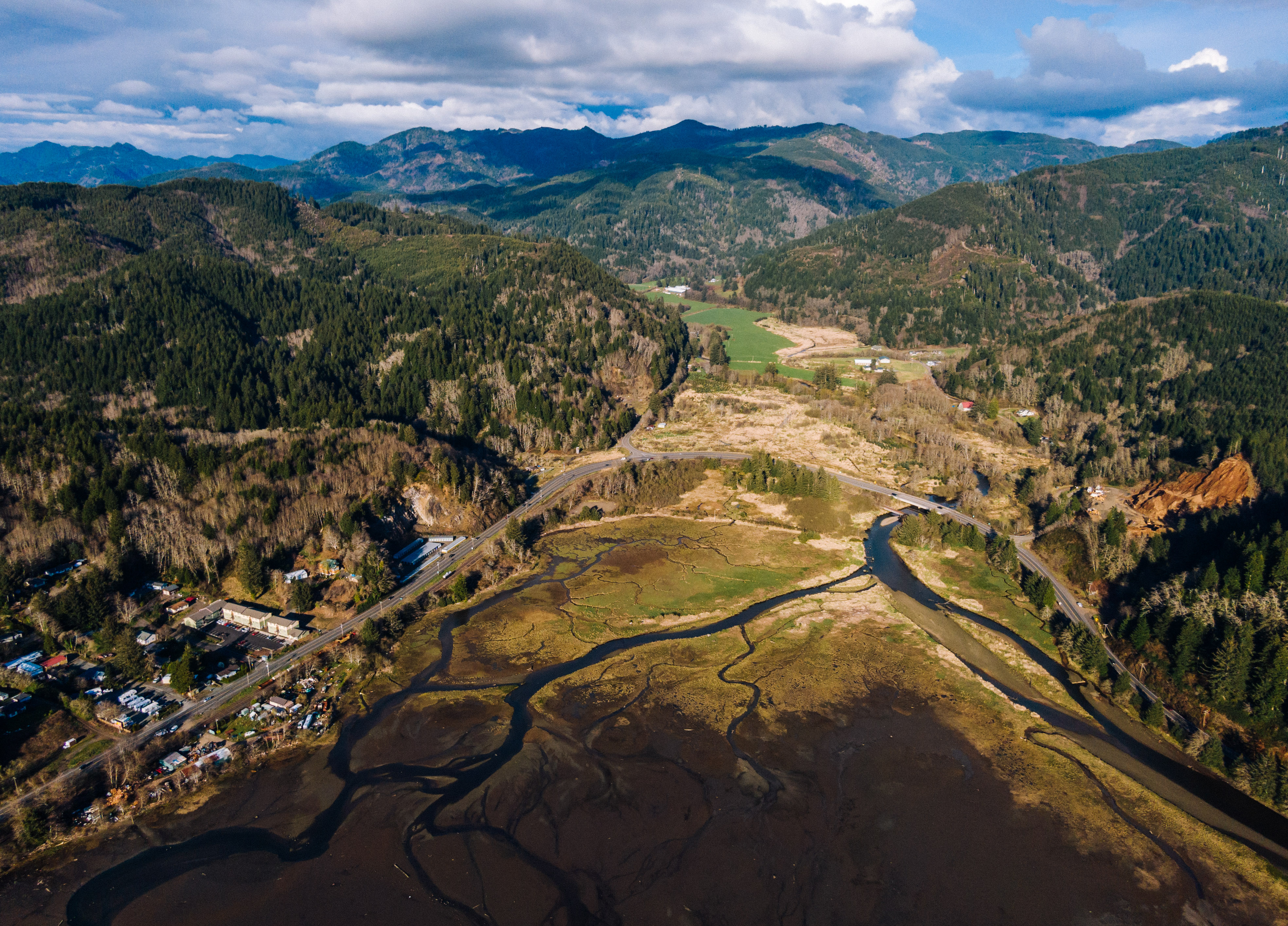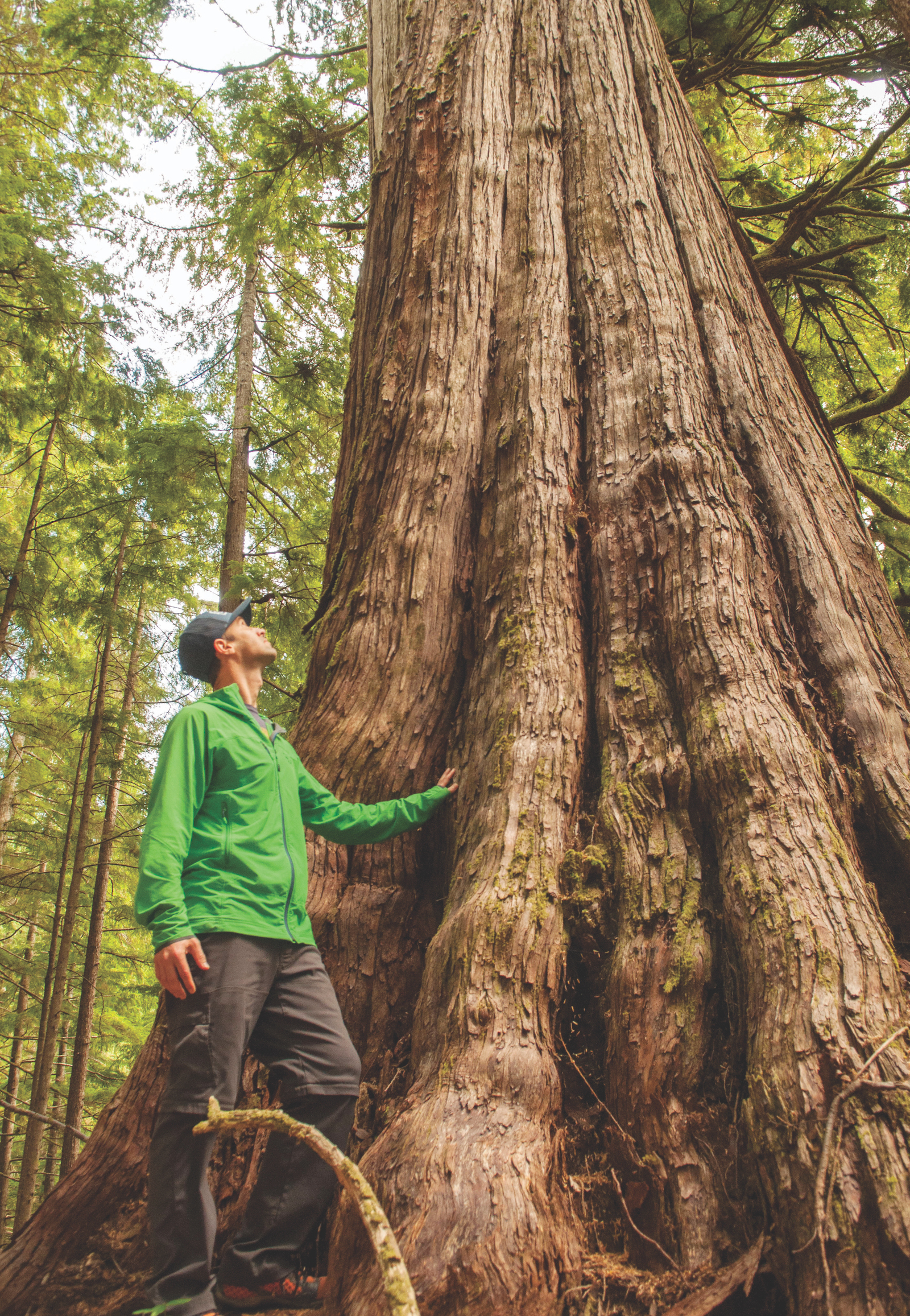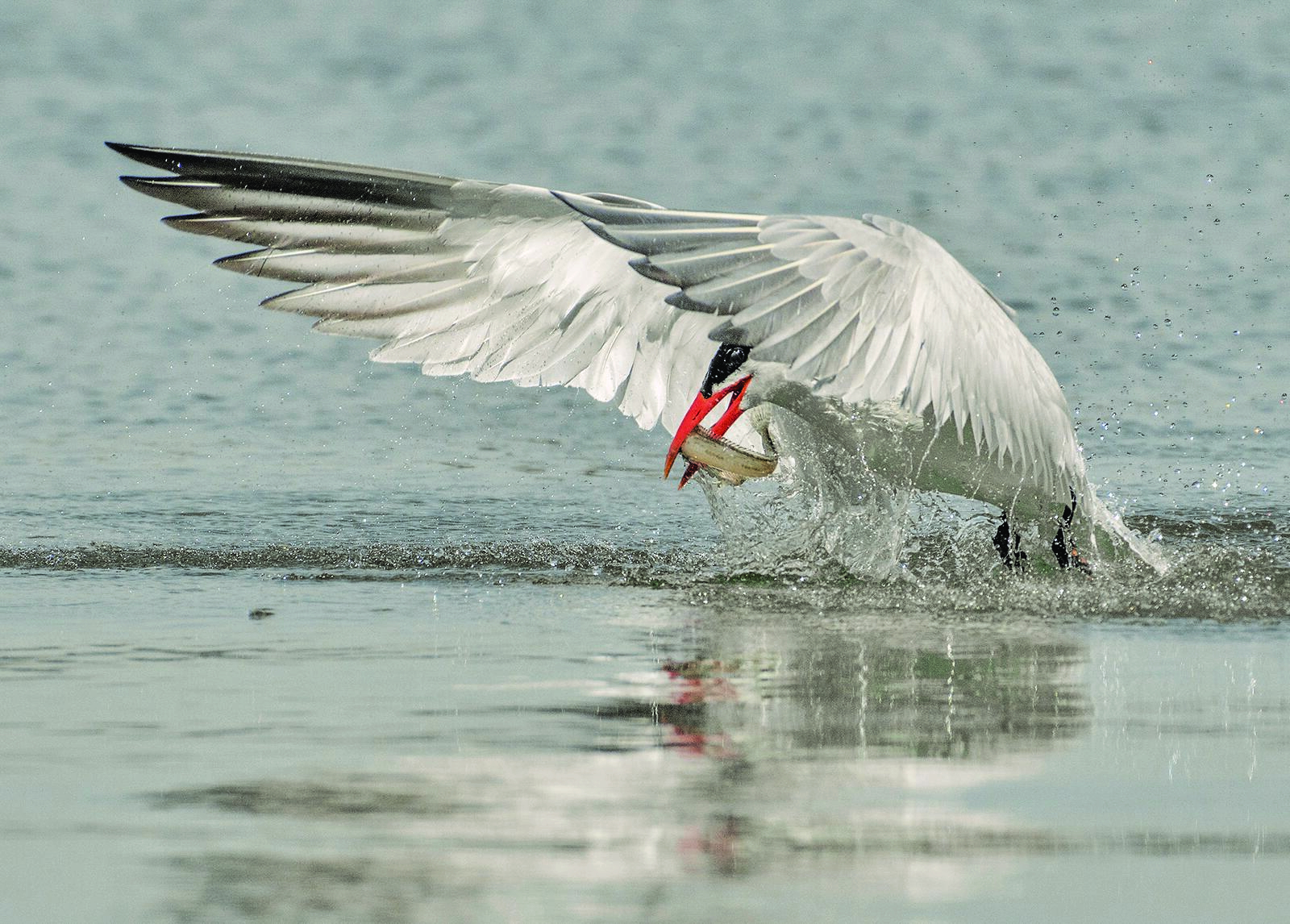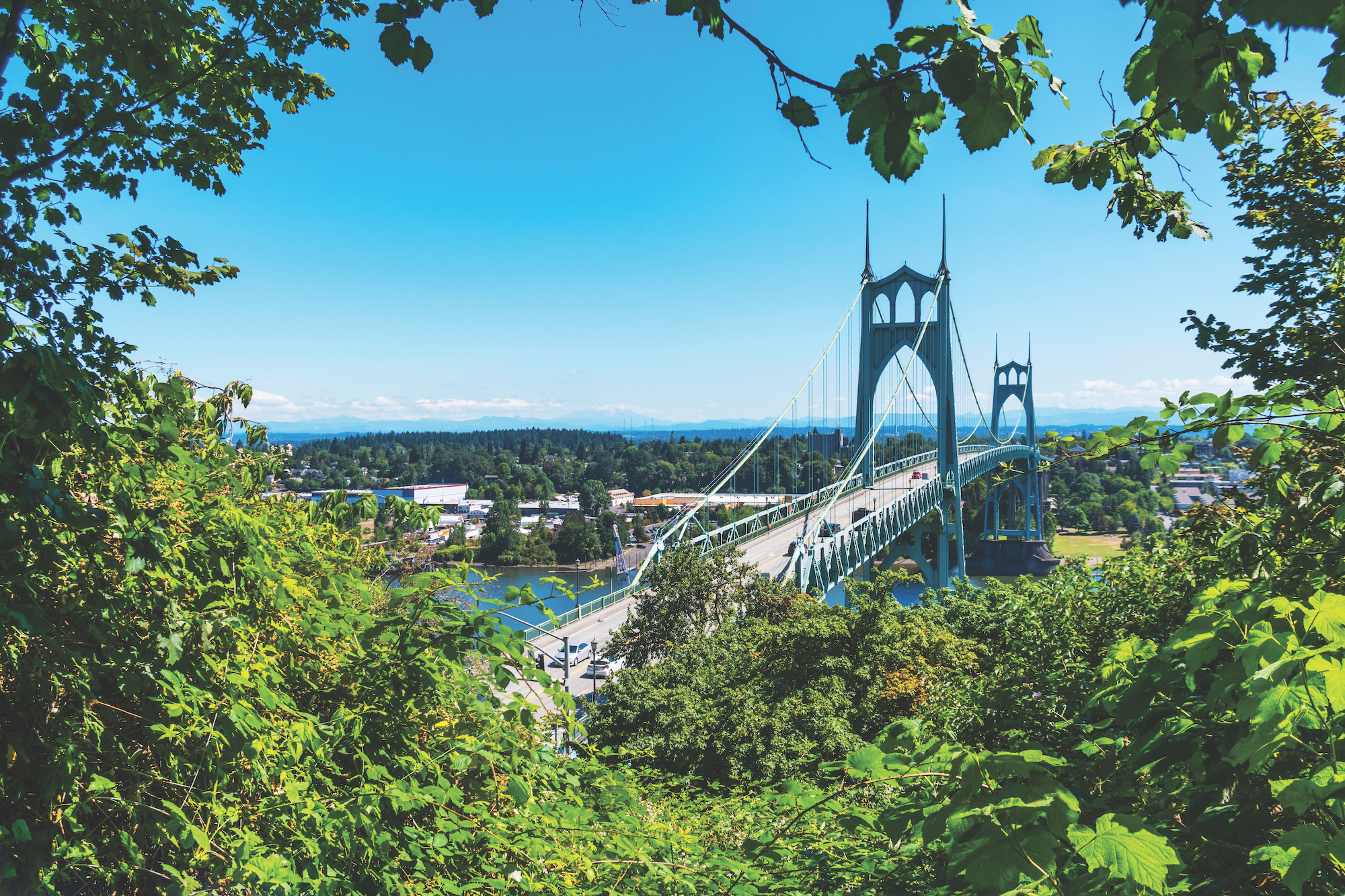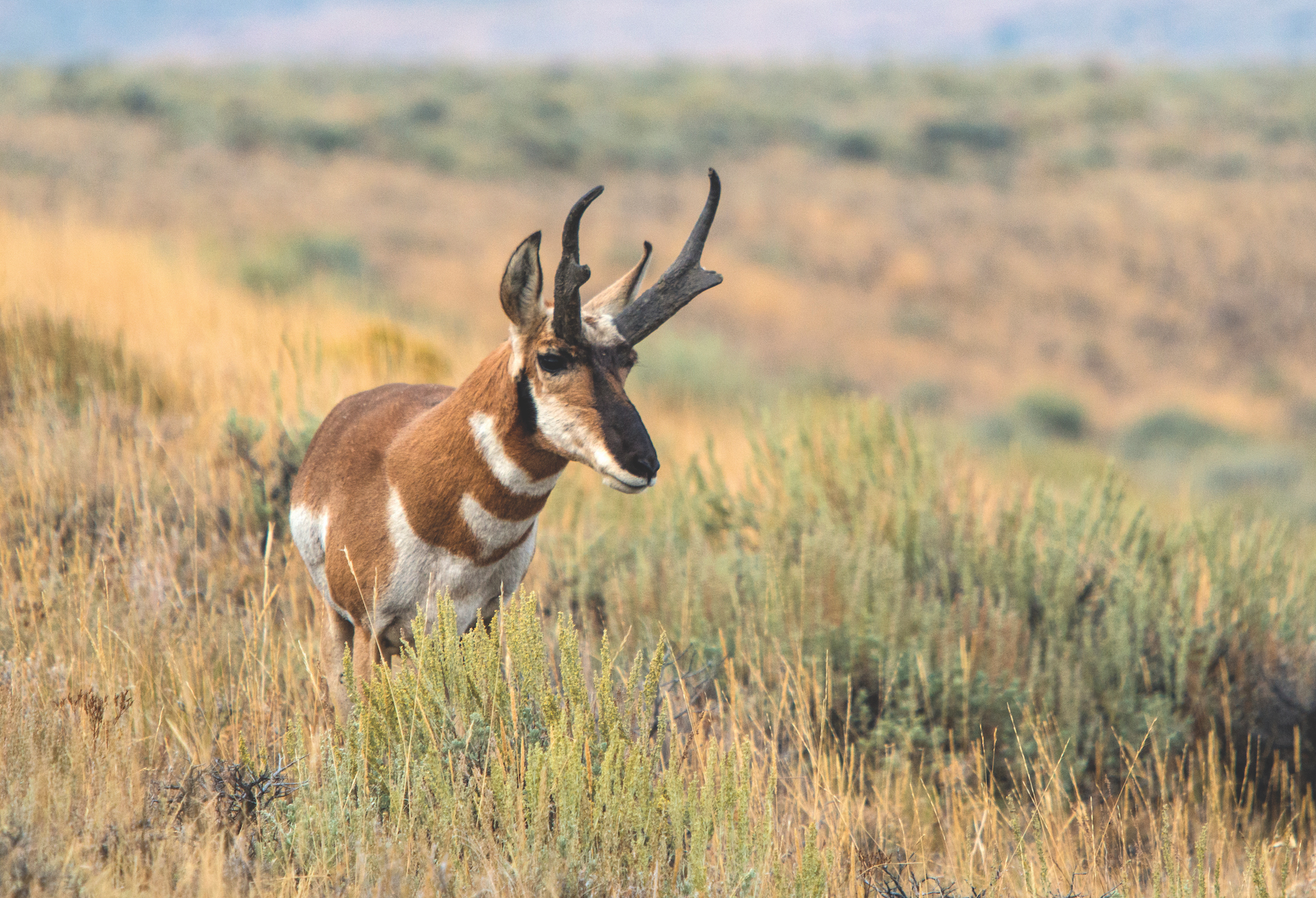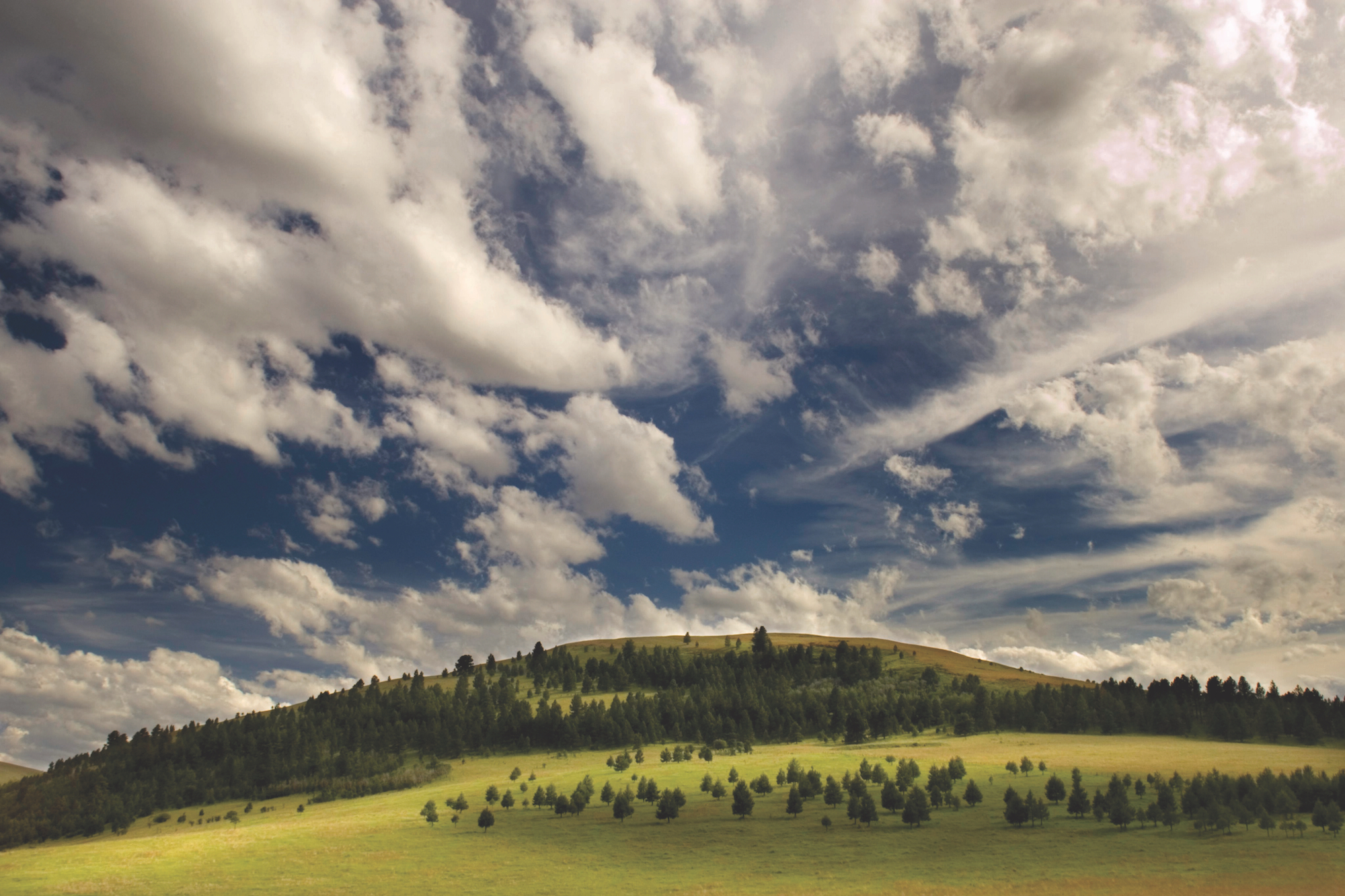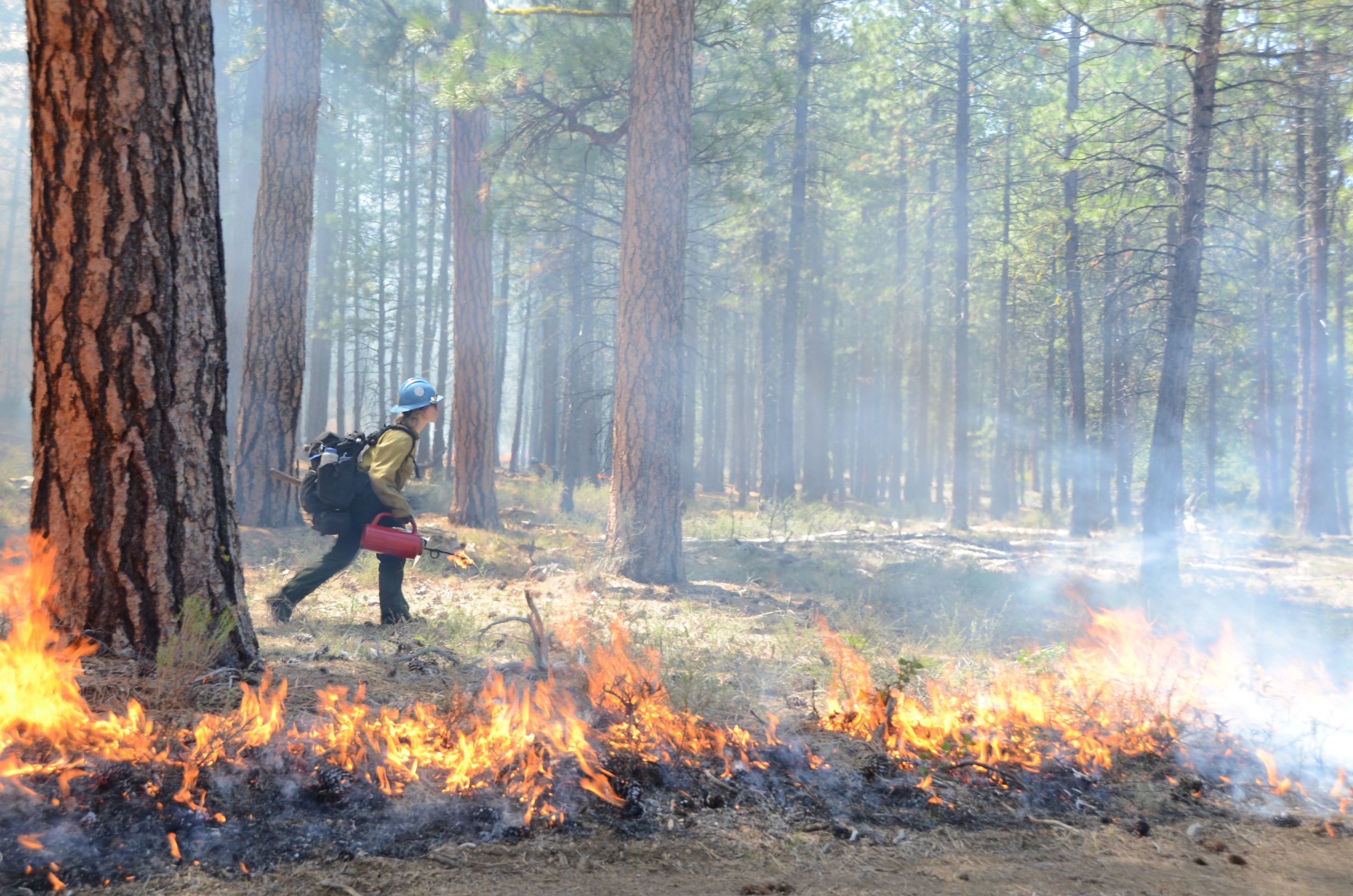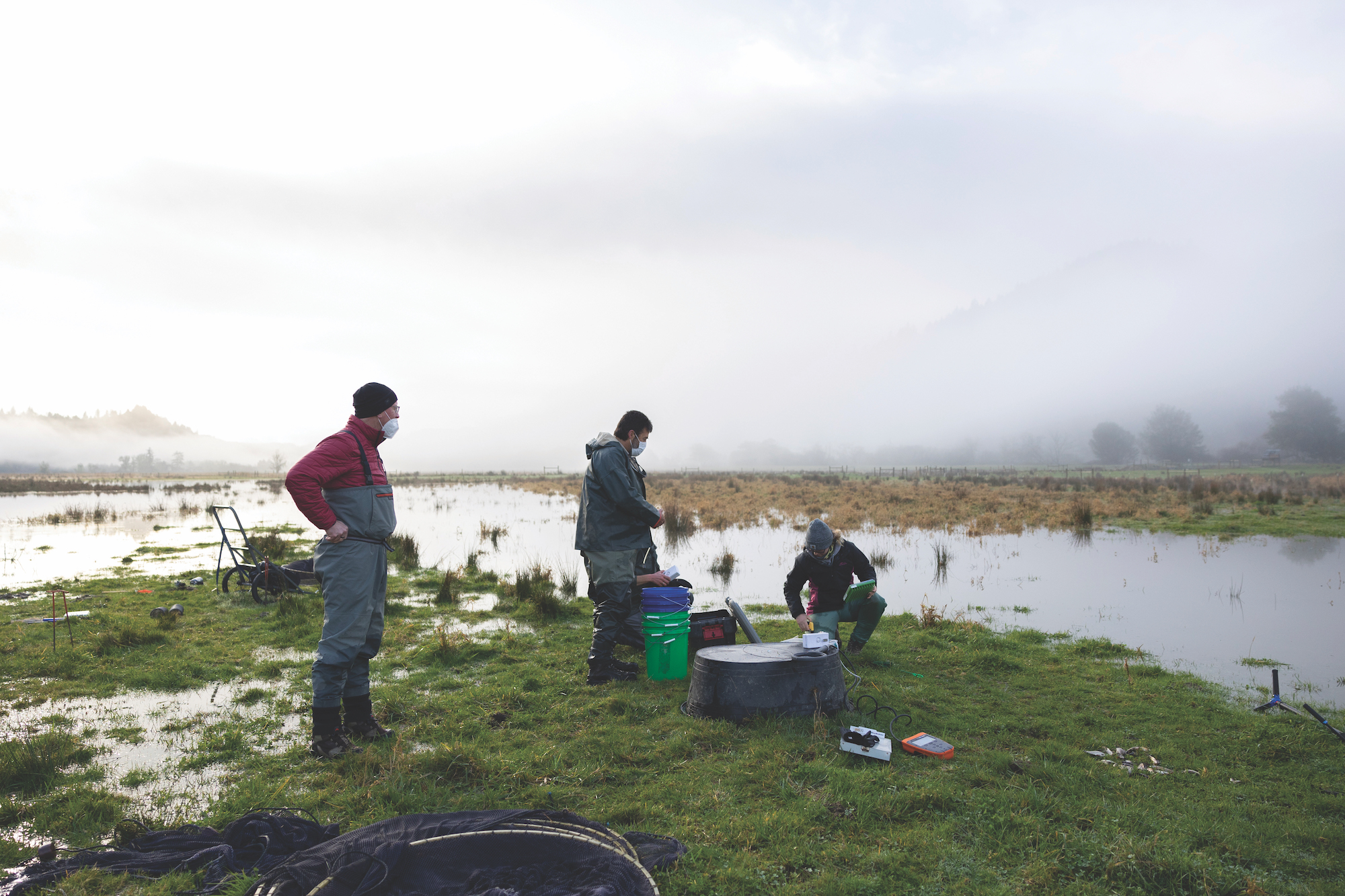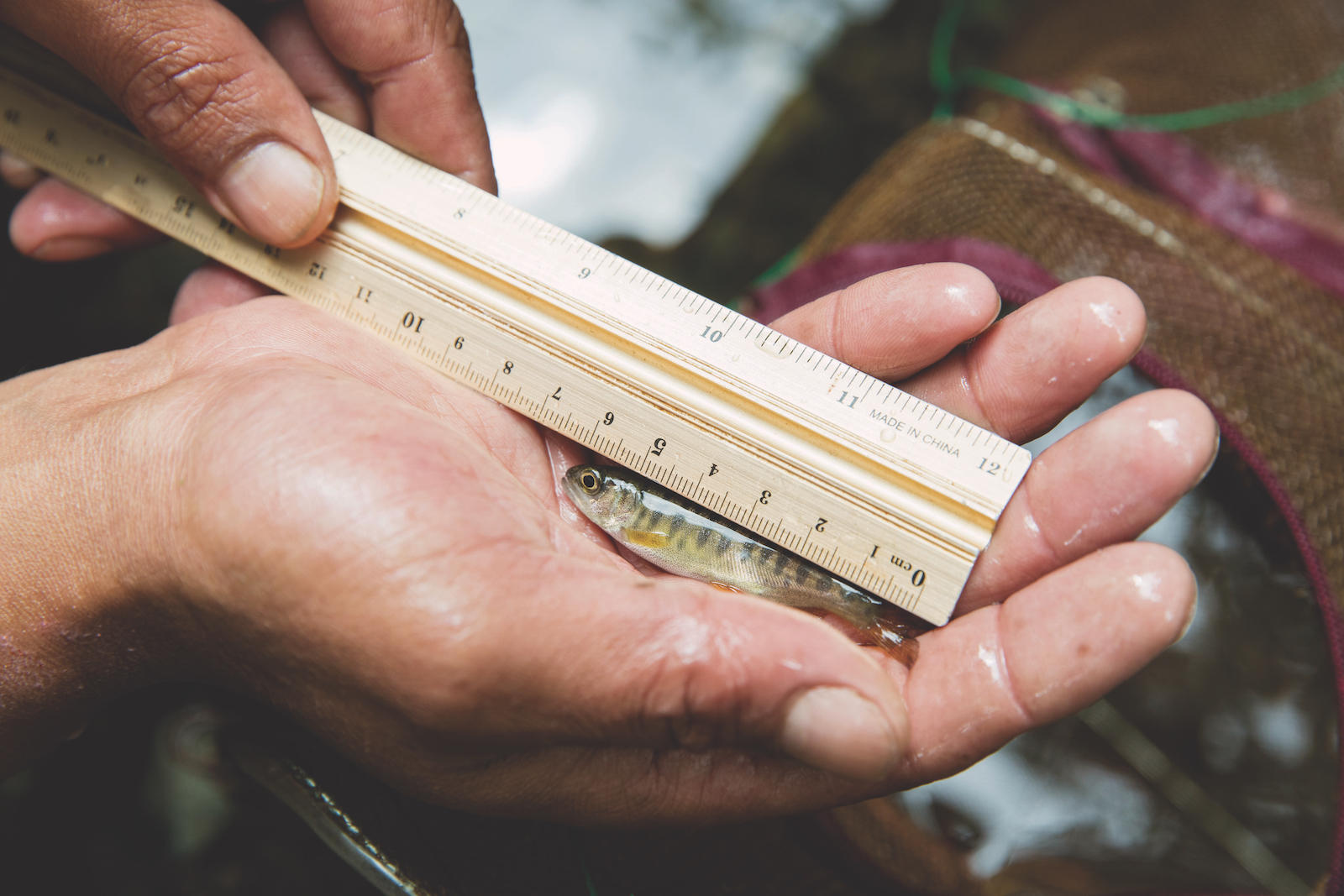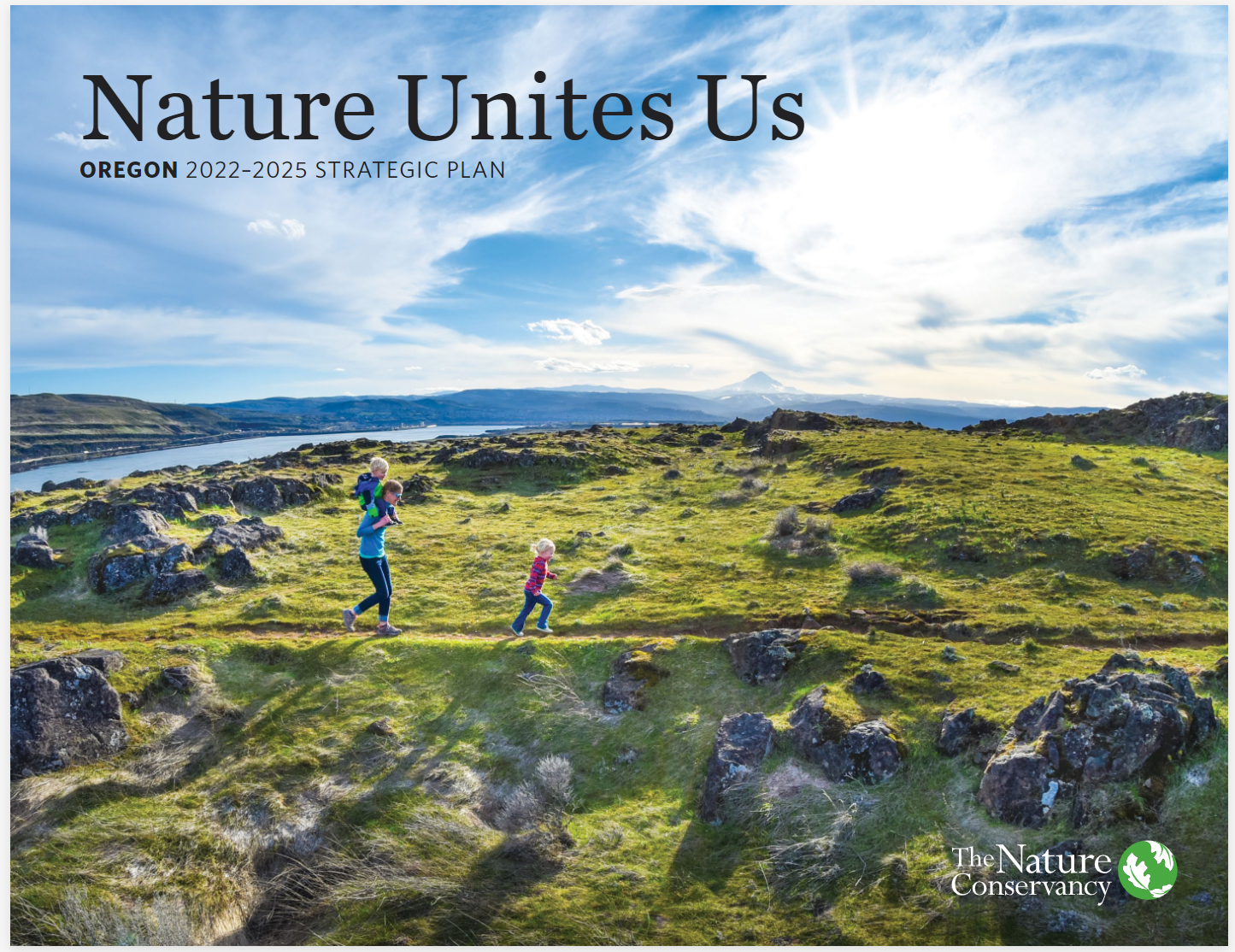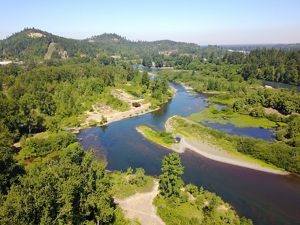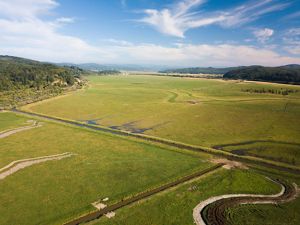Nature Unites Us
Learn how TNC is scaling up our work in the Oregon 2022-2025 Strategic Plan
Nature Unites Us
We are working toward a future where all Oregonians benefit equally from clean air and water, our state leads the way on climate solutions, and our most critical lands and waters are connected, protected and managed to sustain nature in the face of climate change.
Join us as we scale up our work, leverage our history of success, and help people and nature thrive.
Our Essential Pillars
As we work to address the planet’s greatest needs, we recognize that the well-being of nature and people cannot be separated, and how we work is as important as what we achieve. We are committed to examining all dimensions of our work through the lenses of three cross-cutting pillars:
-
Indigenous Lands and Communities
Our interactions with Tribes and Indigenous communities must honor their history and relationship with the land. We will learn and grow with traditional ecological knowledge, pairing it with Western science when invited, to strengthen conservation.
-
Equity in Science and Conservation
We aspire to be intentional and thoughtful about benefits and burdens, historic injustices, and unintended consequences to ensure that conservation actions are enhancing health and well-being and not causing harm.
-
Policy and Advocacy
We bring a distinct voice to policy discussions, based on our on-the-ground expertise, demonstration projects, and science. We will use that voice to maximize our impact for the collective good of people and nature in Oregon.

Climate Action
The days of debate around climate change are long gone. Here in the Pacific Northwest and around the world, we are already experiencing its impacts. Longer, hotter and drier summers. Larger, more extreme weather events. Dangerous urban heat effects. Increasing risks to water security.

We recognize the urgent need for action. What we do between now and 2030 will determine whether warming can be slowed enough to avoid the worst of climate change’s impacts. We must drastically cut emissions and remove carbon pollution from the atmosphere. Fortunately, nature holds many answers. By investing in nature to protect and restore key habitats and carefully managing our working landscapes, we can store vast amounts of carbon.
Climate science drives our conservation priorities. In Oregon, the coming years will see more opportunity for TNC to engage with climate policy design and implementation, advance natural climate solutions, improve community health through urban canopy projects, and protect Oregon’s sustainable water future.
Together, we can limit some of the future warming and the many dangers it poses—but only if we act now. This is our moment. These are our strategies.
Addressing Climate Change
Adapting to Climate Change


Healthy Lands, Oceans, Waters

For more than 60 years, The Nature Conservancy has been a trusted leader in protecting the lands and waters upon which all life depends. From our very first Oregon preserve, the 26-acre Camassia Natural Area in West Linn, to our most recent collaborative conservation win—Trout Creek Ranch that protects more than 500,000 acres near the Pueblo and Trout Creek Mountains in southeastern Oregon—we recognize the power of place and the importance of preserving biodiversity. Over the years, the scale of our work has grown, but our commitment to science and on-the-ground conservation work remains central to our mission. We believe in a future where people and nature thrive together, and that means striking a balance to provide for and sustain our communities while also protecting the nature that makes it all possible. Clean air and water, healthy habitats and working landscapes—what’s good for nature is good for Oregonians.

Terrestrial Health
Aquatic and Ocean Health


Leveraging Our Lands
Since 1961, you have helped us protect thousands of acres of special places, from Cascade Head to Zumwalt Prairie. Many of these places also help us advance key conservation strategies, like critical fire research at Sycan Marsh Preserve and restoring the sagebrush sea at Juniper Hills Preserve. The lessons learned through decades of carefully stewarding our preserves and the ecological knowledge of our Indigenous partners have informed our vision for improving our relationships to Oregon’s diverse landscapes at scale. Connect with our Oregon preserves.
Connect With Our Preserves










Download
Make a Difference in Oregon
Every acre protected and habitat restored begins with your support.

